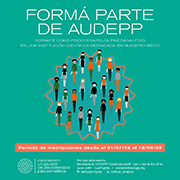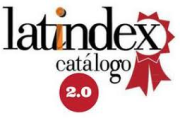HOSPITAL TRAINING TRANSITIONS FOR PSYCHOTHERAPISTS AND SUPERVISORS
DOI:
https://doi.org/10.53693/ERPPA/3.2.4%20Keywords:
hospital, psychotherapy, analytical listening, internal framing, trainingAbstract
In the Psychotherapy Program, within the individual psychoanalytic line, we are called to reflect on the formative aspects of our work. What constitutes a psychoanalytic psychotherapist? Is specific training required to think analytically within the hospital?
We reflect on our own training process by playing the role of coordinator-supervisor of intervision groups. We focus on the development of essential skills for the analytical encounter: analytical listening, internal framing, and theorizing function within the
hospital framework. We contribute to the development of psychoanalysis outside the consulting room, questioning paradigms and building new positionings.
Downloads
References
Baranger, M. y Baranger, W. (1961-1962). La situación analítica como campo dinámico. Revista Uruguaya de Psicoanálisis, 4(1), 3-54. https://www.apuruguay.org/apurevista/1960/1688724719611962040101.pdf
Del Olm o Gamero, A. (2019). El psicoanalista contemporáneo, la formación y los encuadres: Reflexiones sobre la formación psicoanalítica. Revista de Psicoanálisis, 85, 103-123.
Freud, S. (1979). Nuevos caminos de la terapia psicoanalítica. En Obras completas (vol. xvii, pp. 151-163). Amorrortu. (Trabajo original publicado en 1919.)
Grinberg, L. (1975). La supervisión psicoanalítica: teoría y práctica. Paidós.
Hornstein, L. (2018). Escucha y práctica analítica. Revista Uruguaya de Psicoanálisis, 126, 106–121. https://www.apuruguay.org/apurevista/2010/16887247201812608.pdf
Pascale, A. (2010). La psicoterapia psicoanalítica como actividad hospitalaria. En B. Fernández Castrillo, M. C. Gerpe y L. Villalba (comps.), El Programa de Psicoterapia del Hospital de Clínicas (pp. 137-147). Universidad de la República.
Pomeraniec, N. (2010). El vínculo terapéutico - Lo terapéutico del vínculo. En B. Fernández Castrillo, M. C. Gerpe y L. Villalba (comps.), El Programa de Psicoterapia del Hospital de Clínicas (pp. 155-162). Universidad de la República.
Schroeder, D. (2010a). Observaciones acerca del marco analítico hospitalario. En B. Fernández Castrillo, M. C. Gerpe y L. Villalba (comps.), El Programa de Psicoterapia del Hospital de Clínicas (pp. 163-169). Universidad de la República.
Schroeder, D. (2010b). Repensando el encuadre interno. Revista Uruguaya de Psicoanálisis, 110, 144-160. http://publicaciones.apuruguay.org/index.php/rup/article/view/1189/1020
Urribarri, F. (2012). André Green. El pensamiento clínico: contemporáneo, complejo, terciario. Revista Uruguaya de Psicoanálisis, 114, 154-173. https://www.apuruguay.org/apurevista/2010/16887247201211-412.pdf
Wechsler, E. (2019). La formación psicoanalítica. Revista de Psicoanálisis, 85, 211- 220.
Winnicott, D. W. (1979). Objetos transicionales y fenómenos transicionales. En Realidad y juego (pp. 17-45). Gedisa.










